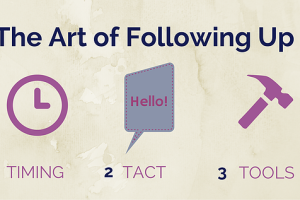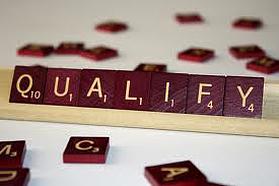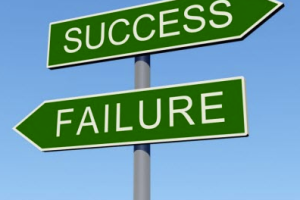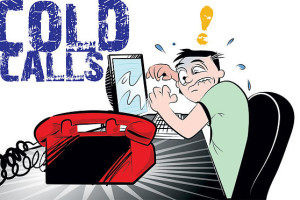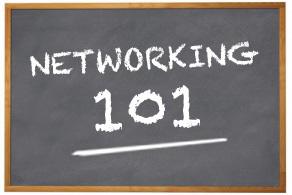It’s not hard to see the similarities between business and professional sports. Many have written about it before. Both are highly competitive. Both demand skill and training, talent and good instincts. Both offer tremendous rewards for success, and both can deal devastating blows for failure.
In both business and sports, a lot of investment goes into key decision points—moments when the outcome of a particular event determines whether we step into the winner’s circle or hit the showers.
So perhaps we business professionals do well from time to time to consider a few pieces of advice from the world of athletics. One thing the most successful athletes have in common is a “winner’s mindset”—a peculiar confidence that compels them to strive against the odds and relentlessly press on toward their goals.
How does one achieve that kind of drive? Well, here are a few suggestions:
Its start with confidence … you need it to succeed in all your endeavors.
Here’s a trick – Let an abundance of PREPARTION fuel your confidence.
Winners don’t actually focus on winning. They focus on getting ready for the game. Before every game, he worked himself into what he described as “a rage.” That was just part of his process”, says Bill Simmons describing one of the best players in NBA history, Bill Russell. “I spent the day visualizing that night’s game, thinking about my opponent, playing out sequences in my head, revving myself up, basically. If you think of basketball like chess, it makes a little more sense — I always wanted to be two or three chess moves ahead of everyone else. I didn’t block shots in the moment. I blocked them five hours earlier. By the time I slipped on my uniform, I had already played out every possibility and determined every reaction. ”
C’MON MAN… not only is that confidence, but the man himself watched the game in his mind, paly by play.
Athletes like Russell know that it’s fruitless to dwell on possible outcomes of the contest. Worrying over the possibility of losing is distracting rather than constructive. They channel their energy into the pre-game show, anticipating obstacles and strategizing how they will overcome them.
Now we’ve covered athletes, but how about successful salespeople?
Successful salespeople spend their time honing their product knowledge, researching consumer trends, packing their notes with statistics and quotations to use during sales presentations, and rehearsing their pitches in front of their peers.
They also engage in positive visualization, mentally rehearsing every aspect of success well before the big day.
We all know and love Zeke right? Minus everything off the court… “Create a clear image in your mind, complete with sights, smells and emotions. When I’d be walking down the street for, say, lunch, I’d imagine those individuals in front of me. I’d imagine going around them, punishing them on the way to the cup” advises Hall of Fame legend, Isiah Thomas.
Good ol’ Jack Nicklaus shares that same belief too… “I never hit a shot, not even in practice, without having a very sharp in-focus picture of it in my head; and when it happens you’ll feel as though you’ve already been there”.
By the time well-prepared salespeople finally meet with prospective customers, they’re brimming with confidence. In their minds, the sale is already in the bag. Even if this deal doesn’t work out, they reason, other opportunities will come around soon enough.
Let competition energize you.
Athletes live for the adrenaline rush of game day. They are endlessly preparing for the next tournament because they don’t just want to win; they want to beat the odds and do better than ever before.
That’s why we crave competition. We know that winning means nothing unless were up against a worthy competitor. If you have that winner’s mindset, competition is a perpetual guard against complacency and smug self-satisfaction.
“If you’re going to be in business – you better be a competitor,” Guess who said that?
The answer was Magic Johnson by the way.
A competitor will do their homework, research, bring their passion and fire, will be disciplined. And let me be the first to tell you – if you collapse under the pressure to innovate or you cant find your sales groove, you wont last long.
It’s not that we enjoy competition, exactly. After all, it’s stressful and unsettling trying to keep up with others who are after your customers!
But the fact remains that competition is a sign of a healthy market, so it’s something we do well to face with determination rather than reluctance.
Which is why we must…
Reorient our perspective on failure.
In order for there to be winners, there have to be losers. We do well to face up to that fact without pretending it were otherwise. No amount of optimistic preparation and positive visualization can prevent us from occasionally having to admit defeat.
But while this may be true in terms of a particular contest’s outcome, it would be a tragic mistake for us to internalize the outcome and assume that losing a match means we’re unfit to keep playing the game.
If you need further proof, look no further than Michael F*@&#ing Jordan:
I’ve missed more than 9,000 shots in my career. I’ve lost almost 300 games. Twenty-six times I’ve been trusted to take the game-winning shot and missed. I’ve failed over and over and over again in my life. And that is why I succeed.
The same goes for us as entrepreneurs. Individual deals come and go; some will be grand slams, and others will be strike-outs. But what ultimately makes us winners is how we use both to evolve our strategies, adapt our product ideas, and keep pace with the dynamics of investor interest and consumer demand.
Thinking like a winner means striving for the wins and growing through the losses.
It also means checking our egos at the door when it comes time to perform. Winners are careful to avoid conflating their immediate self-confidence with their long-term self-esteem. They don’t allow their general state of happiness to be determined by the outcome of each successive contest. They know their self-confidence can take a knock every now and then without it permanently shattering their self-esteem; it just requires them to adapt and move on.
If you’re in sales then you’re in sales because you simply can’t not do it (incorrect grammar, screw it). As long as we can find a way to tap into that and let it drive us to prepare diligently and compete fiercely, we should never think of ourselves as losers again!
Play ball.


